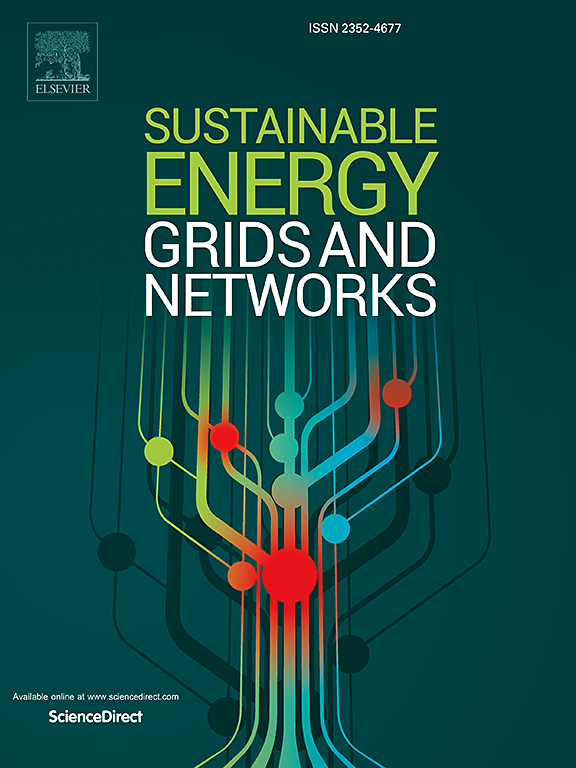A decision-making framework for multi-microgrids scheduling considering joint P2P energy and reserve trading floor
IF 5.6
2区 工程技术
Q2 ENERGY & FUELS
引用次数: 0
Abstract
This paper proposes a two-stage stochastic bi-level framework for joint energy and reserve scheduling of grid-connected Multi-Microgrids (MMGs) to achieve a win-win outcome in the presence of renewable resources and demand response programs (DRPs). In this framework, interconnected Microgrids (MGs) collaborate to facilitate bilateral energy exchange, leveraging economic advantages through peer-to-peer (P2P) energy and reserve trading platforms. Also, an MMG operator (MMGO) facilitates the interaction between MGs and plays a pivotal role in supplying loads, ensuring safety, and providing reserve as well as trading energy with the main grid, covering both day-ahead and real-time markets. To this end, a bi-level problem is formulated in which, at the upper level of the problem, the MMGO reschedules the MGs based on the P2P energy trading by considering the targets of each MG, while, at the lower level, each MG tries to optimize the local energy and reserve scheduling. In this model, flexible resources of MGs can provide upward/downward reserves to the grid through reserve trading, where the MMGO is responsible for reserve procurement. Numerical results show that the simultaneous energy trading and reserve services between MGs can help them achieve economic benefits. Moreover, DRPs can assist MGs in sharing more energy and reserve when the P2P trading floor is considered.
考虑联合P2P能源和储备交易大厅的多微电网调度决策框架
为实现可再生资源和需求响应方案的双赢,提出了并网多微电网(mmg)联合能源和储备调度的两阶段随机双级框架。在这一框架下,互联微电网合作促进双边能源交换,通过点对点(P2P)能源和储备交易平台发挥经济优势。此外,MMG运营商(MMGO)促进了MMG之间的互动,在供应负荷、确保安全、提供储备以及与主电网交易能源方面发挥着关键作用,涵盖了日前和实时市场。为此,提出了一个双层问题,在问题的上层,MMGO考虑每个MG的目标,基于P2P能源交易对MG进行重新调度,在下层,每个MG尝试优化局部能源和储备调度。在该模型中,MMGO的灵活资源可以通过储备交易向电网提供上行/下行储备,MMGO负责储备采购。数值计算结果表明,同时进行能源交易和储备服务,可以帮助各大电网实现经济效益。此外,考虑P2P交易大厅时,DRPs可以帮助mg共享更多的能量和储备。
本文章由计算机程序翻译,如有差异,请以英文原文为准。
求助全文
约1分钟内获得全文
求助全文
来源期刊

Sustainable Energy Grids & Networks
Energy-Energy Engineering and Power Technology
CiteScore
7.90
自引率
13.00%
发文量
206
审稿时长
49 days
期刊介绍:
Sustainable Energy, Grids and Networks (SEGAN)is an international peer-reviewed publication for theoretical and applied research dealing with energy, information grids and power networks, including smart grids from super to micro grid scales. SEGAN welcomes papers describing fundamental advances in mathematical, statistical or computational methods with application to power and energy systems, as well as papers on applications, computation and modeling in the areas of electrical and energy systems with coupled information and communication technologies.
 求助内容:
求助内容: 应助结果提醒方式:
应助结果提醒方式:


